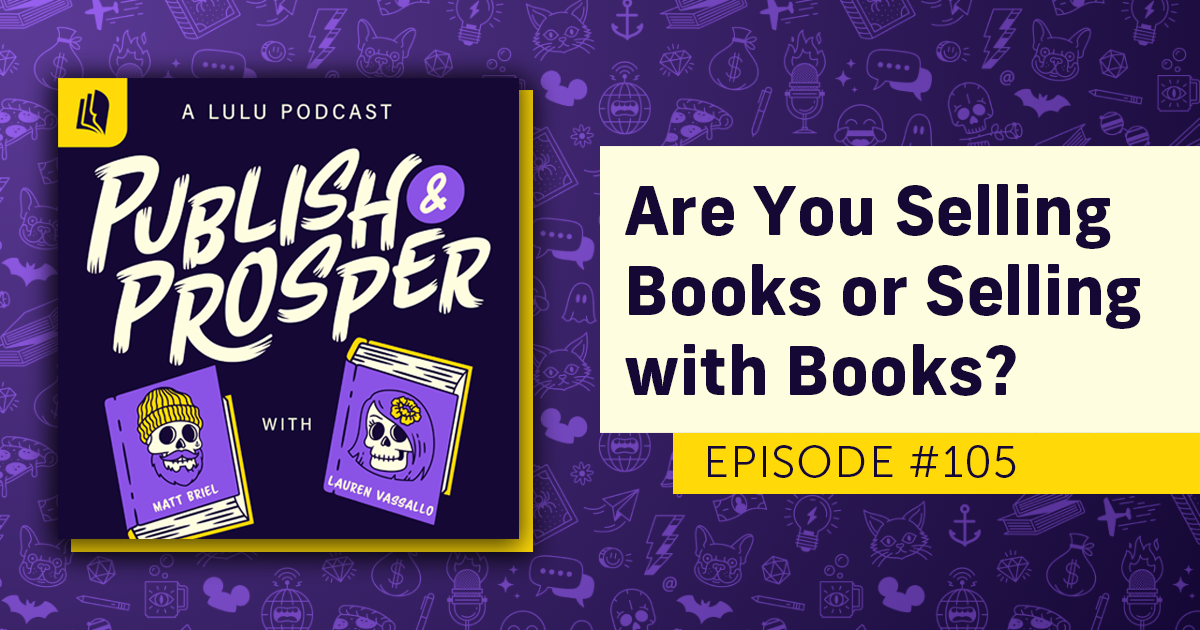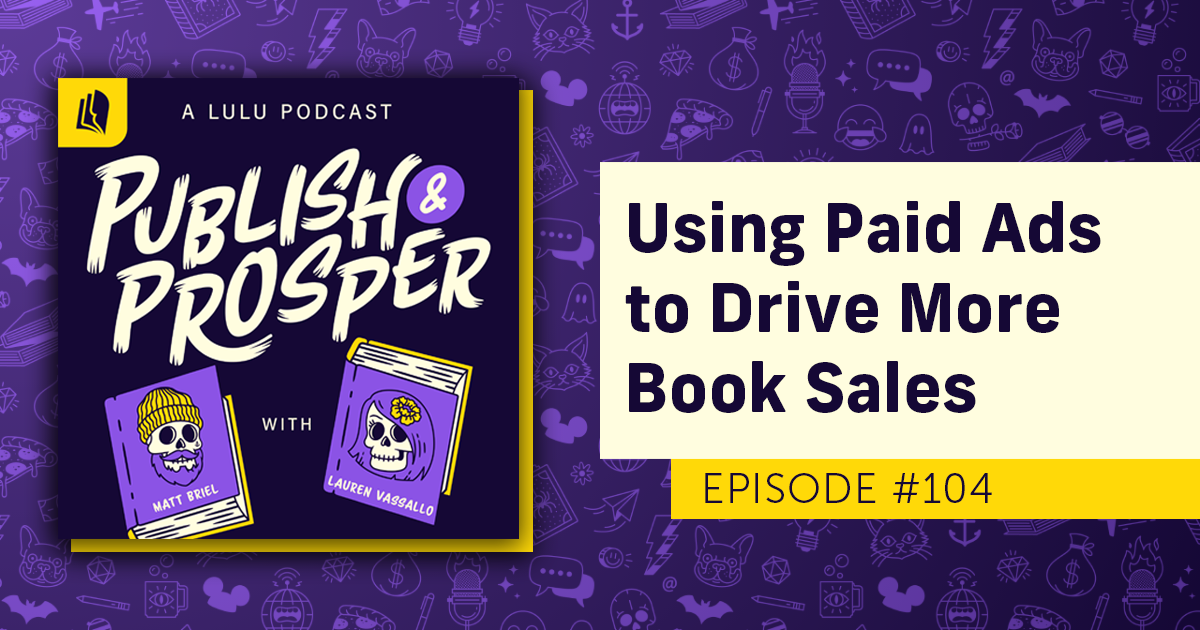Book Reviews: An Overlooked Path to Success
Imagine this scenario: You’re browsing through Goodreads, looking for a book to keep you entertained this weekend. You’re in the lists, under the Sci-Fi tags, checking out Best Steampunk Books. You could just go with the top of the list, but there are those star ratings. A 3-star book at the top of the list? No thanks. I’ll scroll down to number 17, with 4.5 stars thank you very much.
Why? Because user ratings matter. A lot. Amazon, the shopping behemoth, is basically just a shipping subscription service and product review site. Think about it. How do you decide between a stupendous number of products to fill any given need? Reviews.
In this way, getting reviews for your book may well be the most important factor in hooking new readers. A good cover and a well-crafted description are the other elements. The question becomes: how do I get reviews for my book?
A World Connected
Modern shoppers make their decisions largely based on reviews and recommendations. We’ve always relied heavily on the recommendations of others to inform our buying decisions—that aspect of our consumer activity hasn’t changed.
However, according to Invesp’s 2015 research, 88% of consumers trust online reviews as much as personal recommendations (see the full infographic below).
Let that sink in. We overwhelmingly accept anonymous online reviews with the same weight we accept the recommendation of someone we personally know. That’s a staggering amount of faith to have in a stranger. But the fact remains; we’ll open our wallets based on the advice of unknown consumers like us.
Books Are No Different
Readers treat books the same way they do any other product. When we don’t know precisely what we want, we rely on reviews.
The more reviews your book has (and the more positive those reviews are), the better a chance it will be picked up by someone who knows nothing about you or your book.
That is just a fact. The chance may not be huge, but it is an improvement. And the better the reviews, the more useful they become. If you’ve got a highly-reviewed book in a niche genre, other readers in that genre want to find your book. Right?
I certainly am no different. I’ve discovered amazing books by browsing a genre I like and pausing on books with numerous 5-star reviews. This is just the way we shop. So why wouldn’t you want to take advantage of the same system?
Types of Reviews
Before we get into how to get reviews for your book, let’s step back just a little and look at what a review entails. Basically, you can think of there being two types of book reviews: a reader review and a reviewer review.
Reader reviews are going to be your most common kind of review. You’ll be asking for these reviews from your friends, family, and beta-readers. We’ll circle back around to the reader review in a moment.
But first, let’s take a second to talk about reviewer reviews. You might hear them referred to as trade reviews too. These are reviews you’ll pay an established organization to provide for you.
Kirkus Book reviews
The most widely known example of a trade reviewer is Kirkus Reviews. Kirkus is a long-standing and well-established organization specializing in providing content reviews. Their lowest-level package runs about $425 for a single book review.
Kirkus advertises its service as both a marketing tool for getting the attention of readers and a tool for attracting potential agents or publishers. It can also help with the crafting of your book. Getting a dismal review from Kirkus should indicate a major issue with the manuscript that can then be addressed before going any further with the publishing process.
They’ll also publish the review on their site. So, for $425 you’ll have a professional review from a very recognized service you can add to your cover or use in your marketing.
I’m not going to make a statement about the value of spending that money on a review. In general, I think most self-published authors won’t realize the full value they invest in a paid review. But for some it will be a boon, helping push their book into the hands of more new readers.
In general, though, self-published authors are better served focusing on their reader reviews.

Your Free Lulu Account
Create a Lulu Account today to print and publish your book for readers all around the world
Acquiring Reader Book Reviews
Now we’re going to get into the tricky part.
Let’s accept the data out there indicating that reviews are influential to consumers for all sorts of goods and that numerous positive reviews have an even greater impact.
So how do you get those reviews?
You have to ask for them.
You need to start by setting reasonable and attainable goals. Remember that the long-term goal of a book review is to draw in new readers without you (the author) having to commit time or money to marketing efforts.
So, to get your book off the ground with some reviews, you’ll need to look to the folks you know and ask them to help. Let’s consider a scenario:
You’re four months from your book’s release date. You’ve got 100 people on your mailing list—this includes your friends, family, and beta-readers. You assume 50 of those 100 people will buy a copy on release. What if you reached out to a few of these people (either those you’re relatively sure will buy the book or otherwise) and offered them a free copy of the book if they were willing to provide a review?
Leveraging Connections
If I know an author, either personally or because I’ve opted to join their mailing list, and they reach out to me offering a free advance copy if I review it, I’ll jump on that offer.
Giving away a few copies to your dedicated followers and friends is a great way to kick-start your book. But you want to avoid having just people you know reviewing your work. That can lead the appearance of inflating your reviews with “friendly” readings of your book.
Fortunately, Goodreads and other reading community sites make it easy to connect with readers. I’ll stick with Goodreads as an example because so many know about this site already, but they are hardly the only author and reader community on the web.
A quick look over at Goodreads Community pages, you’ll find dozens of groups from genre-specific ones to publishing and writing-focused groups.
What it amounts to is that you need to use these online tools to expand your network so that you can solicit reviews from outside your existing circle. You can even use these networking tools to incentivize new readers without specifically soliciting a review. Consider doing a giveaway on Goodreads or Facebook. If you give ten copies of your book away for free and even only two of those readers leave a review, you’ve bought two reviews for an incredibly low price!
On top of that, you’ve expanded your network. This means even more readers and potential reviewers for your subsequent books. Each connection you make accumulates to make your future releases more successful.
The last idea I found from this article on Entrepreneur – add a page at the end of your book asking for a review! It’s deceptively simple and I can’t I personally know any authors who have done this successfully. But it’s a great idea. If someone got to the end of your book and enjoyed it, I can see how a gentle prompt to leave a review might be just the thing to inspire them.
Using Reviews
Reviews are one of the most important and efficient means of expanding awareness for your book. The reviewer can easily be incentivized to leave a review, the effort to do so is low, and as countless studies show, amassing reviews is almost a necessity for acquiring new buyers.
You’ll want to be sure to post the best reviews of your book on your website and social media. You can also use them on your cover—I’m sure you’ve seen plenty of traditionally published books featuring reviews on the cover. I would caution that putting the reviews on the book is less potent for a self-published author. The reader actually has to buy the book before they can really see those reviews, and at that point, it’s not convincing them of anything because they’ve already made their purchase.
Online reviews are the key and featuring them in your own advertising and social media is the route you’ll probably want to take. Then you’ll let those reviews do the work for you, giving potential readers the final push they need to just buy your book.




